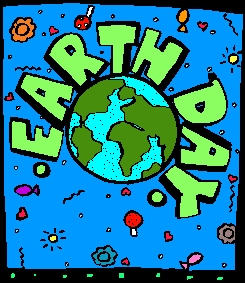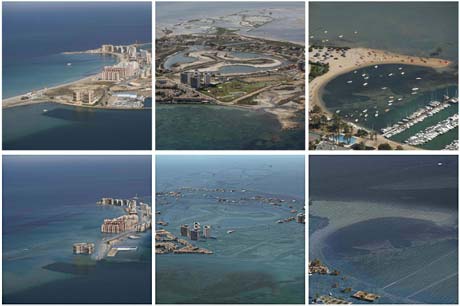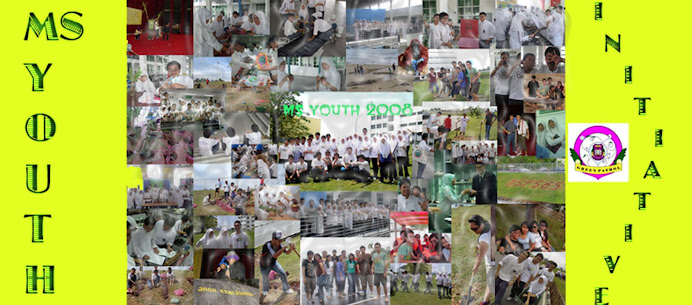
Saturday, April 26, 2008
Warming World

Tuesday, April 22, 2008
Monday, April 21, 2008
HAPPY EARTH DAY!!!!!!! 22nd April 2008

Sunday, April 20, 2008
2008's "Greenest" Car

Recognizing Honda's application of fuel efficient and alternative fuel technologies, four Honda vehicles earned recognition from the American Council for an Energy-Efficient Economy (ACEEE) as the "greenest vehicles of 2008"
The Civic GX natural gas car has taken the title of the greenest vehicle for the fifth consecutive year.
In the 11th annual ACEEE's "Green Book Online" ranking of environmentally responsible vehicles (available at www.greenercars.org), the natural gas-powered Civic GX ranked first with the gasoline Civic, Fit and Civic Hybrid joining the list of the 12 most environmentally-conscious vehicles available to the public.
This is the eighth year in a row that a Honda vehicle received the number one ranking and the seventh consecutive year that Honda vehicles held at least four positions in the top 12, an impressive one-third of all vehicles on the list.
"The ACEEE awards speak to the commitment Honda has made to lead the industry in lowering emissions, increasing fuel efficiency and reducing dependence on oil," said John Mendel, executive vice president of American Honda.
"Honda continues to set the standard for socially and environmentally-responsible automotive products and our commitment to alternative fuels will further expand with the zero emissions FCX Clarity fuel cell vehicle coming to market this summer."
Using a singular measure that incorporates fuel economy, health-related pollution impacts and global warming emissions, all vehicles are analyzed and given a "Green Score."
This score is used in ACEEE's ranking system, resulting in a ranking of each vehicle's total environmental performance, including a list of the 12 "greenest" and 12 "meanest" vehicles.
The Civic GX, first introduced in 1998, is the cleanest internal combustion vehicle certified by the EPA, and is 90% cleaner than the average gasoline-powered car on the road today.
Saturday, April 19, 2008
Rules and Regulations for the Sculpture competition

Thursday, April 17, 2008
THE SCULPTURE COMPETITION IS BACK!!
World Earth Day

Earth Day is intended to inspire awareness of and appreciation for the Earth's environment.
It was founded by John McConnell in 1969.
Responding to widespread environmental degradation, Gaylord Nelson, a United States Senator from Wisconsin, called for an environmental teach-in, or Earth Day, to be held on April 22, 1970. Over 20 million people participated that year, and Earth Day is now observed each year on April 22 by more than 500 million people and national governments in 175 countries
In the process of beautifying the school compound



Wednesday, April 16, 2008
Before and After Global Warming pictures




Global Warming videos

Interesting Recycling facts

Why recycle?
• Saves landfill space
• Saves natural resources
• Saves energy
• Creates jobs
#1 Making cans from recycled aluminum cuts related water pollution by 97%
#2 Recycling one aluminum can saves enough energy to run a television for three hours.
#3 Manufacturing new aluminum cans from used beverage containers uses 95% less energy than producing them from virgin materials, an energy saving equivalent to tens of millions of barrels of oil each year.
#4 Every ton of recycled paper saves 17 trees, 7,000 gallons of water, and 4,100 kilowatts of electricity.
#5 Americans use 2.5 million plastic bottles per hour.
#6 Making steel cans from recycled steel reduces energy consumption by 74%, virgin materials by 90%, associated air pollution by 86%, water consumption by 40%, and associated water pollution by 76%.
#7 All steel products contain at least 25% recycled content.
#8 Composting saves limited landfill space and turns garbage into a valuable resource. It can reduce your trash and improve plant health and retain soil moisture with the use of the compost.
Therefore ladies and gentlemen, please recycle.

Tips to protect the world
We’ve all noticed the temperatures getting a warmer, SUVs getting bigger and hurricanes and earthquakes ravaging the Earth, but is it global warming or a natural occurrence? Al Gore’s new documentary, “An Inconvenient Truth” shows his efforts to halt global warming's deadly progress in its tracks by exposing the myths and misconceptions that surround it. He believes global warming is not a political issue, but an individual moral issue facing every member of our community.
Here are some tips to help protect the environment. At home:
- Recycle everything: newspapers, bottles and cans, aluminum foil, etc.
- Don't use electrical appliances when you can easily do by hand, such as opening cans.
- Don't leave water running needlessly.
- Turn off the lights, TV, or other electrical appliances when you are out of a room.
- Flush the toilet less often.
- Switch off your computers, laptops and TV before you go to sleep.
Reduce, Reuse and Recycle

Recycle means to process old, used items in order that the material can be used to make new products. Examples of things that are often recycled are glass, plastic, newspapers, aluminum cans, used motor oil, and batteries. Here, reduce refers to lessening the amount of items or resources that are consumed, using only the amount that is needed, and looking for alternatives that will lessen our use. And reuse means extending the 'life' or repurposing an item rather than discarding or throwing it away.
"The world is your stage. Play your part. Save the world."
Previous Themes

2006 - Deserts and Desertification - Don't Desert Drylands!
2005 - Green Cities – Plan for the Planet!
2004 - Wanted! Seas and Oceans – Dead or Alive?
2003 - Water – Two Billion People are Dying for It!
2002 - Give Earth a Chance
2001 - Connect with the World Wide Web of Life
2000 - The Environment Millennium - Time to Act
1999 - Our Earth - Our Future - Just Save It!
1998 - For Life on Earth - Save Our Seas
1997 - For Life on Earth
1996 - Our Earth, Our Habitat, Our Home
1995 - We the Peoples: United for the Global Environment
1994 - One Earth One Family
1993 - Poverty and the Environment - Breaking the Vicious Circle
1992 - Only One Earth, Care and Share
1991 - Climate Change. Need for Global Partnership
1990 - Children and the Environment
1989 - Global Warming; Global Warning
1988 - When People Put the Environment First, Development Will Last
1987 - Environment and Shelter: More Than A Roof
1986 - A Tree for Peace
1985 - Youth: Population and the Environment
1984 - Desertification
1983 - Managing and Disposing Hazardous Waste: Acid Rain and Energy
1982 - Ten Years After Stockholm (Renewal of Environmental Concerns)
1981 - Ground Water; Toxic Chemicals in Human Food Chains
1980 - A New Challenge for the New Decade: Development Without Destruction
1979 - Only One Future for Our Children - Development Without Destruction
1978 - Development Without Destruction
1977 - Ozone Layer Environmental Concern; Lands Loss and Soil Degradation
1976 - Water: Vital Resource for Life
1975 - Human Settlements
1974 - Only one Earth
World Environment Day 2008





















